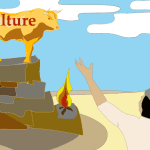Nancy Sleeth is the co-founder and Managing Director of Blessed Earth and in her latest book Almost Amish she combines her years of insight in practical creation care into a must read for anyone who is trying to answer the question, “How can Christians live more faithfully day to day?” So why Almost Amish? As Nancy puts it she was talking about hanging her cloths on the line with the reasons and personal and spiritual benefits of simplicity. When in... Read more




















